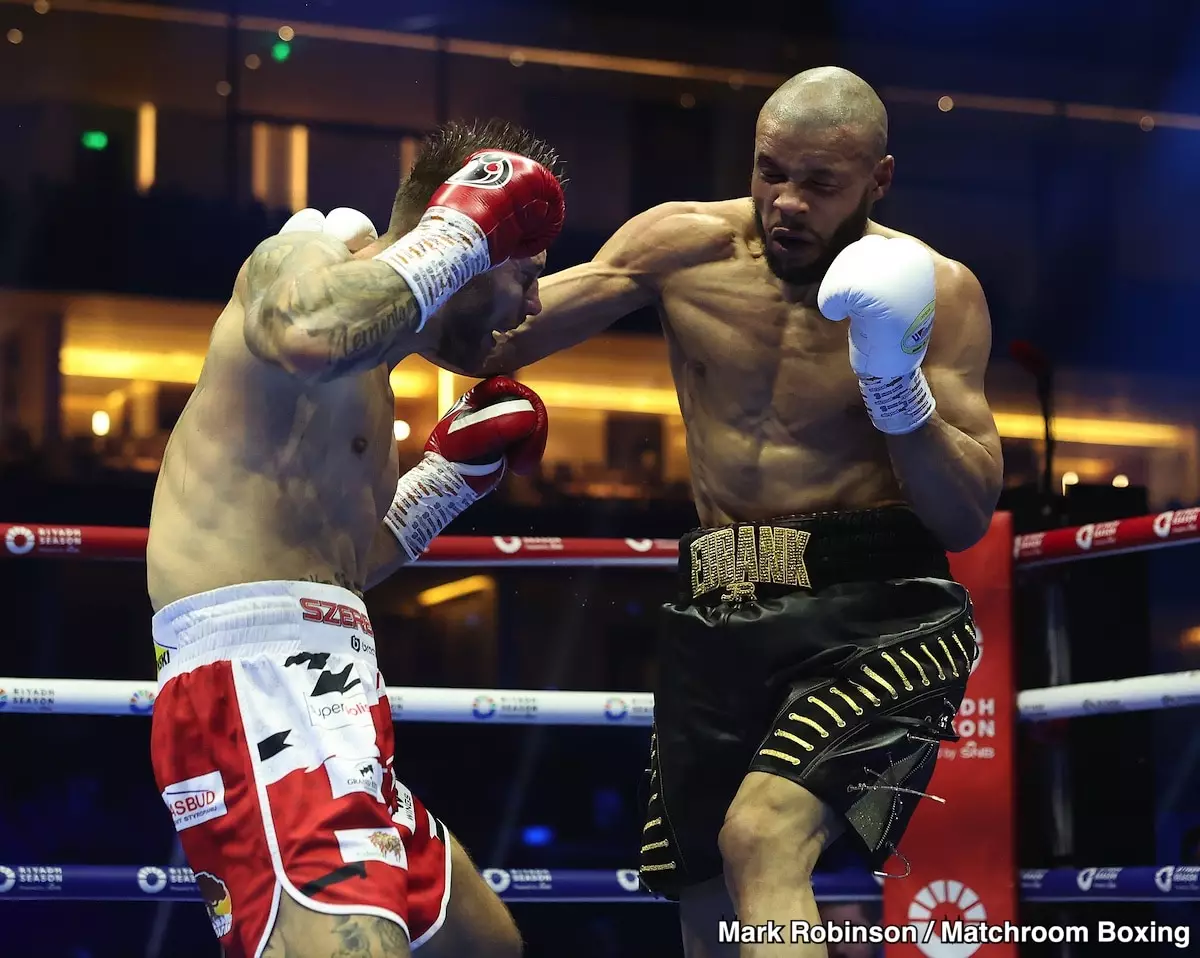The Fading Legacy of Chris Eubank Jr A Critical Examination
Boxing has always been a sport where the line between raw talent and sheer celebrity can be quite blurred. In recent times, Chris Eubank Jr. has found himself at the center of this crossroad. As someone who carries a storied family name into the ring, he’s often perceived more as a product of his lineage than as a formidable athlete in his own right. This perception has been fueled by critiques from notable figures like Carl Froch, who suggest that Eubank Jr.’s career is driven more by his family name and media appeal than by genuine sporting ambition.
I remember watching Chris Eubank Jr. in the ring for the first time. The anticipation was palpable—would he live up to the legendary status of his father? But as his career progressed, it became clear that his journey was being shaped by factors beyond just boxing prowess. There were moments when it seemed like his focus was shifting away from pure competition toward maintaining a public persona that capitalized on fame and fortune. It’s a challenging balance to strike, and one that raises questions about what truly drives athletes in today’s world.
The narrative around Chris Eubank Jr. is complex; it’s not simply about winning or losing fights. It’s about understanding the motivations behind his choices and how they reflect broader trends within professional sports. Whether you’re a fan of traditional boxing or drawn to the evolving spectacle it’s becoming, there’s much to learn from examining Eubank Jr.’s career trajectory. Let’s delve deeper into this fascinating discussion about talent, legacy, and what it means to be a modern-day athlete.
Key Takeaways
- Chris Eubank Jr.’s career reflects a tension between heritage and individual achievement.
- Carl Froch’s critiques highlight concerns about prioritizing fame over competitive spirit.
- Eubank Jr.’s popularity rides on both his father’s legacy and strategic match choices.
The Dichotomy of Fame and Talent
Chris Eubank Jr.’s career is often viewed through the lens of his famous father, Chris Eubank Sr., an iconic figure in boxing with multiple world titles. This connection has provided him with an inherent fan base but also placed significant pressure on him to deliver results in the ring. His record of 35 wins and 3 losses is respectable, yet many argue that he hasn’t pursued glory with the tenacity expected of someone with such potential. His most notable attempt at securing a major title ended in defeat against George Groves in 2018, sparking debates about his commitment to achieving greatness.

Carl Froch’s insights offer a candid perspective on Eubank Jr.’s motivations. According to Froch, there seems to be a greater emphasis on financial gain than on rising through the ranks as a serious competitor. It’s a sentiment echoed by many within the boxing community who feel that Eubank Jr.’s pursuits are more aligned with celebrity tendencies than with an earnest quest for titles. This viewpoint raises important questions: Is he content with leveraging his name for lucrative opportunities, or is there still an unyielding desire to prove himself as a top-tier fighter?
The Celebrity Athlete Persona
Over time, Chris Eubank Jr.’s image has morphed from being seen as an emerging middleweight star to adopting the characteristics of a celebrity athlete. His frequent appearances in media and poker games have only added fuel to this fire, suggesting that perhaps he’s more invested in maintaining public attention than training for championships. The shadow cast by his father’s achievements allows him certain liberties when it comes to public criticism; fans often give him the benefit of doubt because of their emotional connection to the Eubank legacy.
This scenario isn’t unique to Eubank Jr.; it’s part of a larger conversation about how legacy athletes navigate their careers amidst public expectations and personal goals. The challenge lies in balancing respect for their lineage with carving out their distinct path—something easier said than done when your every move is under scrutiny.
Chasing Paydays or Titles
The allure of big-money fights has undeniably played a role in shaping Eubank Jr.’s career decisions recently. Scheduled matches against renowned names like Canelo Alvarez and Billy Joe Saunders generate not only fan excitement but also substantial financial incentives. However, these matchups seem strategically chosen for their revenue potential rather than their capacity to further his status as a champion boxer.

A potential bout with Conor Benn exemplifies this strategy—it promises both high stakes and high earnings while offering less risk compared to facing current world champions. Yet, this approach may leave some fans questioning whether he’s genuinely testing himself against top-tier talent or simply managing his career towards profitability as he nears retirement age.
- Reassess motivations: Are financial gains overshadowing sporting ambitions?
- Engage deeply with training: Focus on skill development over media engagements.
- Select opponents strategically: Balance earning potential with competitive challenges.
- Maintain transparency: Communicate goals clearly to fans and critics alike.
Final Thoughts
As we look at Chris Eubank Jr.’s journey thus far, it’s important not just for fans but also for aspiring athletes everywhere—especially those carrying family legacies—to consider what truly defines success in sports today. Is it accolades earned through sheer hard work or maintaining relevance amid changing industry dynamics? While critiques from figures like Carl Froch may seem harsh at times, they serve as valuable reminders about preserving competitiveness within professional arenas.
The fading legacy narrative surrounding Chris Eubank Jr. offers rich insights into modern athletics’ complexities where fame often competes directly against traditional measures of excellence such as titles won or records set inside rings worldwide every day—the ultimate question remains: What should define greatness now?
boxing
Chris Eubank Jr.
professional sports


Leave a Reply